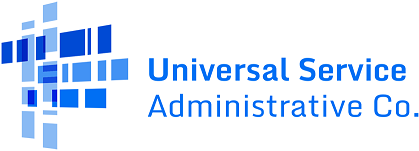Competitive Bidding
Participants in the Schools and Libraries Cybersecurity Pilot Program (Pilot Program or Pilot ) must conduct a fair and open a competitive bidding process and must wait a minimum of 28 days from the date the Pilot FCC Form 470 is posted on USAC’s website before selecting and entering into a legally binding agreement or contract with a service provider. The earliest date a Pilot participant can enter into a legally binding agreement or a contract with a service provider is known as the Allowable Contract Date (ACD). Competitive bidding is a formal process that is used to identify and request the cybersecurity equipment and services that Pilot Program participants need, so that potential service providers can review those requests and submit bids for them.
Pilot participants are required to carefully consider all bids submitted and must select the most cost-effective offering using price as the primary factor. The price of the Pilot-eligible products and services must be the primary (i.e., most heavily weighted) factor in a Pilot participant’s bid evaluation but does not have to be the sole factor considered by the applicant.
The entity that runs the competitive bidding process may be a Pilot participant, a state agency or governmental entity, or a consortium. This entity must certify the Pilot FCC Form 470 in the Cybersecurity Pilot Program portal and must be prepared to receive and evaluate bids and negotiate with service providers.
Filing a Pilot FCC Form 470
Pilot participants can find, complete, and certify the Pilot FCC Form 470 in the Cyber Pilot Program portal.
Pilot participants must wait at least 28 days from the date the Pilot FCC Form 470 is certified before selecting its service provider(s) and ending the competitive bidding process. Substantive changes to the Pilot FCC Form 470 that materially affect the competitive bidding process require Pilot participants to restart the 28-day waiting period before selecting a service provider, signing a contract, or certifying a Pilot FCC Form 471.
If a consultant helps you complete any of the steps required of Pilot participants, you must go to your organization’s profile in the E-Rate Productivity Center (EPC), add the consultant in the Manage Your Organization Relationships section of your EPC account, and include the consultant on your Pilot FCC Form 470.
Visit the Pilot FCC Form 470 User Guide for a step-by-step guide for navigating this form.
Request for Proposals (RFP)
In general, an RFP is a detailed bidding document that describes a project and requests equipment and services in detail, so that potential bidders understand the scope, location, and any other requirements for the equipment and/or services being sought.
Pilot Program rules do not require participants to issue an RFP. However, the entity filing the Pilot FCC Form 470 may elect to issue an RFP if, for example, doing so is a requirement of that entity’s state or local procurement rules or regulations. An entity that has issued or will issue an RFP, must upload that document concurrently with certification and submission of the Pilot FCC Form 470 in the Cyber Pilot Program portal. Entities should not upload a document that contains a link to an RFP. Instead, the actual RFP or RFP document must be uploaded with the Pilot FCC Form 470.
Fair and Open Competitive Bidding Process
Pilot participants must ensure that their competitive bidding processes are fair and open. This means that:
- The entity filing the Pilot FCC Form 470 must ensure that the competitive bidding process is fair and open;
- All bidders must be treated the same;
- No bidder can have advance knowledge of the Pilot Program project information;
- There are no secrets in the process – such as information shared with one bidder but not with others – and all bidders must know what is required of them and information must be shared with all bidders; and
- Pilot participants (including their representatives and consultants) cannot solicit or accept gifts from service providers participating in or seeking to participate in the Pilot Program.
Next Steps
Once the competitive bidding process has closed, the entity that filed the Pilot FCC Form 470 must evaluate all bids received and the most cost-effective service offering(s) with price of the eligible equipment and services being the primary factor considered during the bidder selection process.
